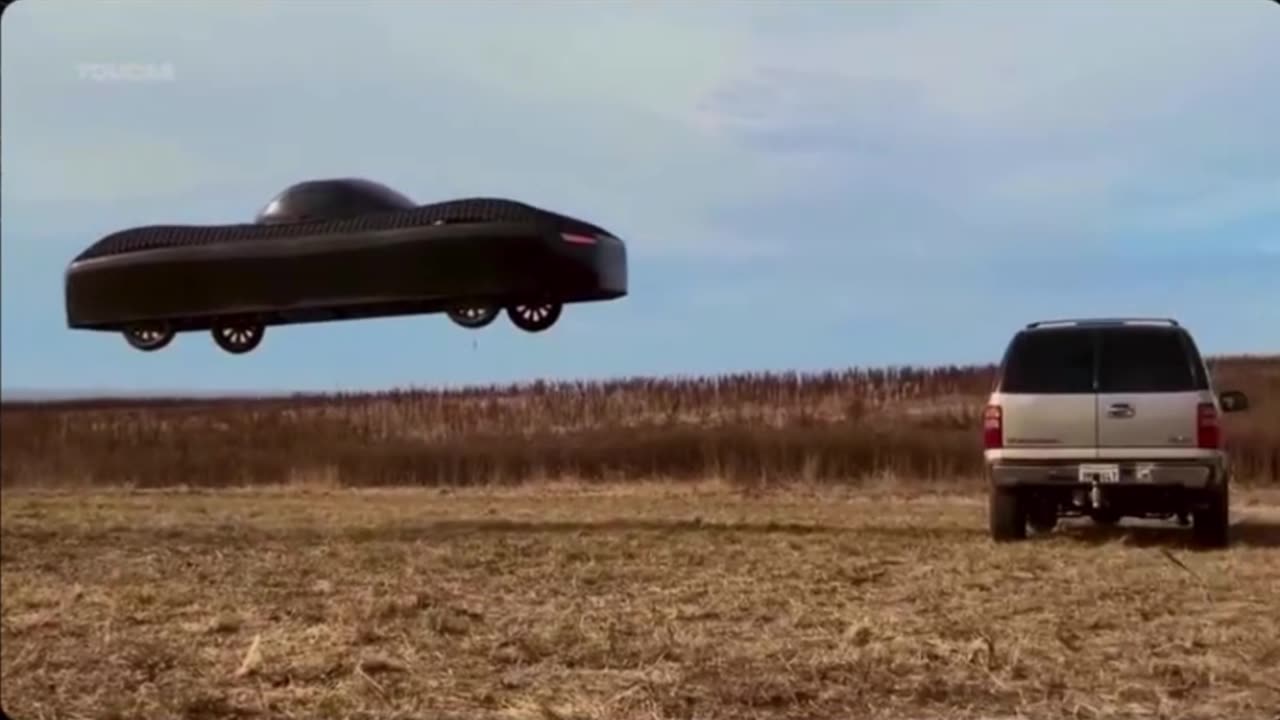Premium Only Content

Electric Flying Car: The Future Has Arrived
The idea of flying vehicles has long been a symbol of science fiction, but today, thanks to technological advances and visionary startups, it is becoming a tangible reality. The California-based company Alef Aeronautics has shocked the world by unveiling the first functional electric flying vehicle for urban environments, taking a decisive step toward the future of mobility.
The model developed by this company, known as Model Zero, has successfully performed a vertical takeoff on a public road, demonstrating its ability to fly over real obstacles like other cars. This event, which could be considered a milestone in the history of urban transportation, reveals that the evolution of mobility has crossed a new frontier. The vehicle can operate as a traditional car on the road, but it also takes off vertically and flies with controlled precision, thanks to a highly sophisticated engineering structure.
The Model Zero is an electric vertical takeoff and landing vehicle (eVTOL), meaning it does not require a runway or airport infrastructure to operate. This makes it a viable option for cities overwhelmed by traffic and for users seeking fast and efficient transportation solutions. The core idea behind its design is that the user can bypass traffic congestion by activating the flight mode, lifting off, and navigating through the air to resume travel or land in a safe zone.
The flight system of the Model Zero is powered by eight electric motors connected to eight propellers hidden within the chassis. This setup provides redundancy in the event of mechanical failure, increasing flight safety. Additionally, the vehicle is equipped with a ballistic parachute designed to deploy in emergencies, adding another layer of protection for the occupants.
In terms of exterior design, the Model Zero resembles a futuristic car more than a traditional aircraft. Its frame is built with lightweight yet durable materials, primarily carbon fiber composites, achieving a perfect balance between weight, strength, and energy consumption. One of the most innovative features of the design is that the vehicle's entire chassis rotates during flight, transforming into a wing while the cabin remains stable to ensure passenger comfort.
Although the Model Zero represents the experimental phase of the project, Alef Aeronautics has concrete plans to launch a commercial version: the Model A. This new model, designed for two passengers, will offer a flight range of approximately 110 miles and a ground-driving range of about 200 miles. The estimated price is $300,000, targeting a premium market willing to invest in cutting-edge technology.
However, the real revolution is expected with the Model Z, scheduled for mass production by 2035. This sedan model will seat four passengers and offer 200 miles of flight range and 400 miles of driving range. With a projected price of just $35,000, the Model Z aims to democratize access to aerial mobility, transforming not only urban transportation but also the daily lives of millions of people.
The possibility that an average citizen could fly over traffic instead of being stuck in it no longer seems like a distant illusion. Alef Aeronautics has taken the first step, and although significant challenges remain — such as developing support infrastructure, regulating urban airspace, and achieving cultural acceptance — the path forward is now clearly defined.
These challenges should not be underestimated. Creating safe air corridors, designated takeoff and landing zones within cities, and automated urban air traffic systems are essential for this technology to be functional and efficiently integrated. A legal framework must also be established to regulate the use of personal aerial vehicles, from user licensing to maintenance and operation protocols.
The emergence of flying cars also raises important sustainability questions. While these vehicles are electric and therefore emit less pollution than conventional cars, mass battery production, the need for aerial charging networks, and the intensive use of specialized materials must be carefully evaluated from an ecological perspective.
Still, the positive impact is undeniable. This type of mobility could completely transform the concept of cities, allowing people to live farther from urban centers without sacrificing travel time. It could reduce pressure on road infrastructure, ease vehicle congestion, and improve access to rural or hard-to-reach areas.
Alef Aeronautics has set a revolution in motion. What once existed only in comic books or sci-fi films is now lifting off from the pavement and into the skies. With the Model Zero, the company has proven that the technology exists, works, and can be used safely. The next step will be making this innovation accessible to the public, integrating these vehicles into our cities and daily lives.
The future is here—and it's flying above us.
-
 21:40
21:40
Bitcoin Policy Institute
5 hours agoCongressman Warren Davidson Unveils the “Bitcoin for America Act” | Spotlight Series #1
4.44K -
 1:25:51
1:25:51
DeVory Darkins
4 hours agoDemocrats caught in corruption scheme as JD Vance issues MAJOR UPDATE
128K59 -
 1:48:48
1:48:48
MattMorseTV
5 hours ago $34.49 earned🔴Sedition Charges INBOUND.🔴WH Press Conference.🔴
47.1K126 -
 9:06
9:06
Jamesons Travels
20 hours ago $3.01 earnedMilitary Veterans in Congress Tell Troops to Refuse Trump's Orders
18.8K36 -
 DVR
DVR
The Bold Lib
2 hours agoBOLDCHAT: Unemployment | AI | Birth Rates w/ANGELA BELCAMINO
14K -
 20:34
20:34
ArynneWexler
6 hours agoNew Poll: Women Are Done With America | NN8
15.6K29 -
 59:30
59:30
The White House
5 hours agoPress Secretary Karoline Leavitt Briefs Members of the Media, Nov. 20, 2025
52.2K28 -
 2:06:37
2:06:37
Steven Crowder
7 hours agoJasmine Crockett's Epstein Idiocy & the Absolute State of the Democrat Party
563K365 -
 33:37
33:37
The Boomer Effect
17 hours agoBeyond Convenience: The Tyranny Behind Digital IDs
14.9K1 -
 1:15:39
1:15:39
Sean Unpaved
5 hours agoAre Josh Allen & Bills On UPSET ALERT vs. Texans? | UNPAVED
36K